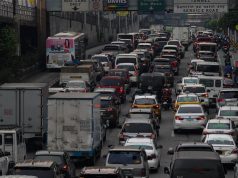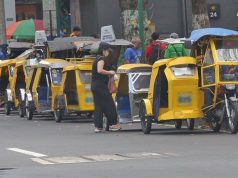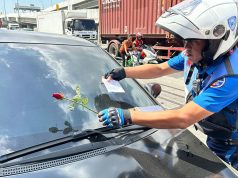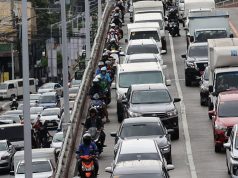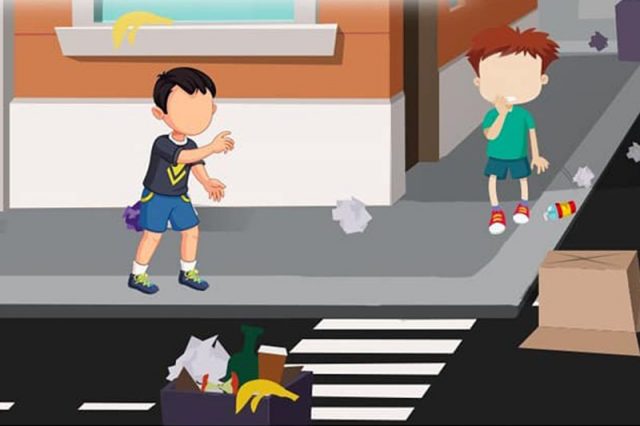
“Ikaw ba ‘to?”
A government agency once again reminded the public of the existing anti-littering law on social media.
The Metro Manila Development Authority (MMDA) on Sunday urged Filipinos to remove “bad habits” of throwing their own litter and trash everywhere.
“Ang pagkakalat o pagtatapon ng anumang uri ng basura tulad ngbalat ng kendi, upos ng sigarilyo, papel, at iba pa ay paglabag sa MMDA Regulation No. 96-009 o Anti-Littering,” it said on a Facebook post.
“Ang mahuhuling lumalabag ay papatawan ng multa o magbibigay ng community service,” it added.
“Ugaliing sumunod sa batas para sa kaligtasan ng ating kalusugan at sa kaayusan ng kapaligiran,” MMDA continued.
The traffic authority also accompanied its post with graphics featuring the following phrases in an attempt to voice out some thoughts of those prone to litter:
“Wala namang nagbabantay.”
“Minsan lang naman.”
“Eh, ano. Trip ko magkalat.”
“Eh hindi ko alam na bawal…”
The Anti-Littering Law or the MMDA Regulation No. 96-009 was enacted by the Metro Manila Council in 1996.
The law prohibits the following in Metro Manila:
- Littering, Illegal dumping, Illegal disposal of garbage;
- Urinating, defecating, spitting in a public place;
- Dirty frontage and immediate surroundings for establishment owners;
- Improper and untimely stacking of garbage outside residence or establishment;
- Obstruction (any dilapidated appliance, vehicle, and etc., display of merchandise, illegal structure along sidewalk);
- Dirty public utility vehicles, or no trash can or receptacle;
- Spilling, scattering, littering of wastes by public utility vehicles; and
- Illegal posting or installed signage, billboards, posters, streamers and movie ads, etc.
Violators of the law will be apprehended by the MMDA Environmental Enforcers, who have the authority to issue Environmental Violation Receipts (EVR) tickets to the offenders.
These enforcers are also authorized to file cases for the non-compliance of violators or their non-payment of administrative fines.
If they cannot pay the fines, the offenders will have to render certain hours of community service ranging from eight hours to two days, depending on the violation.




